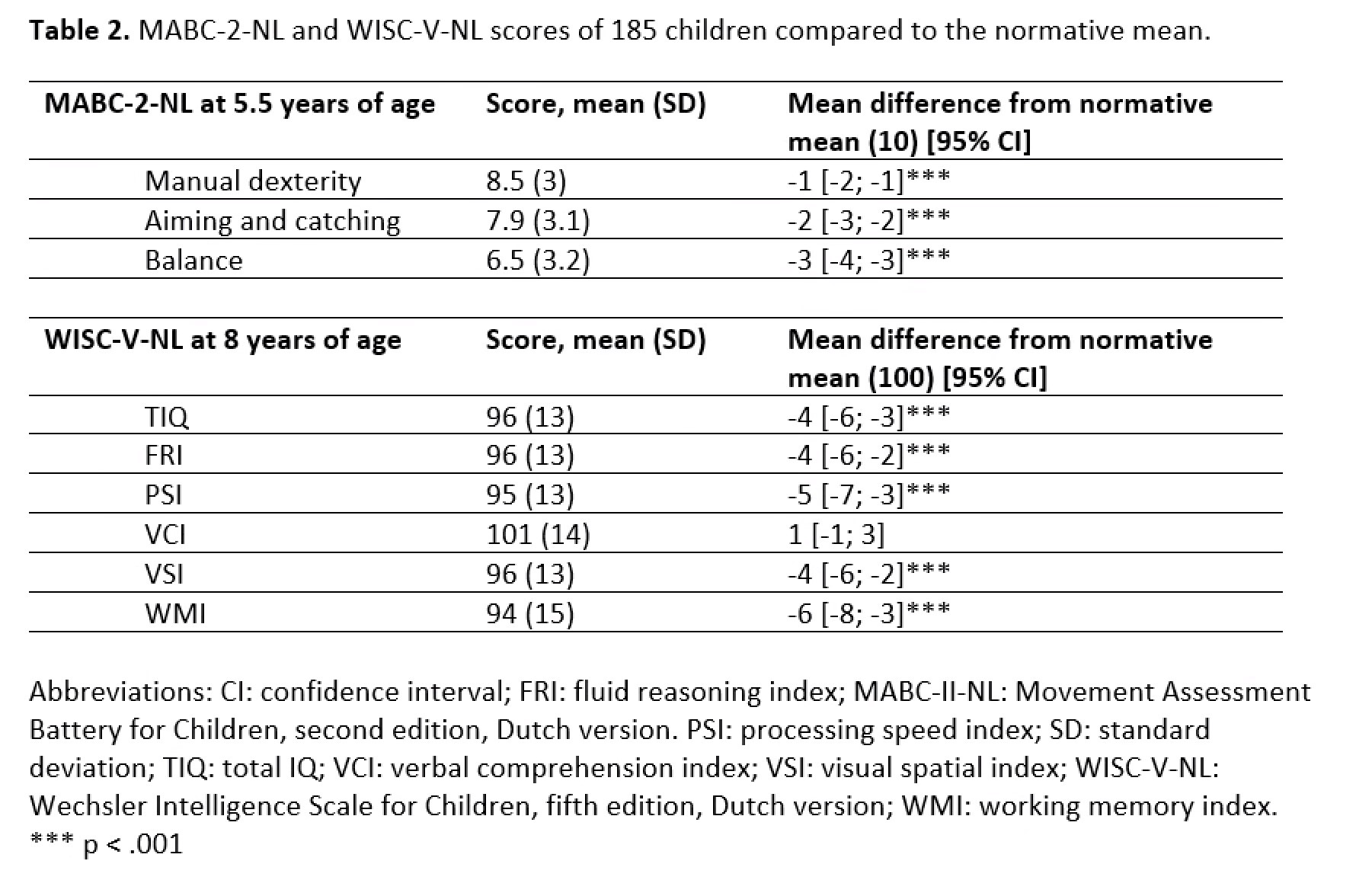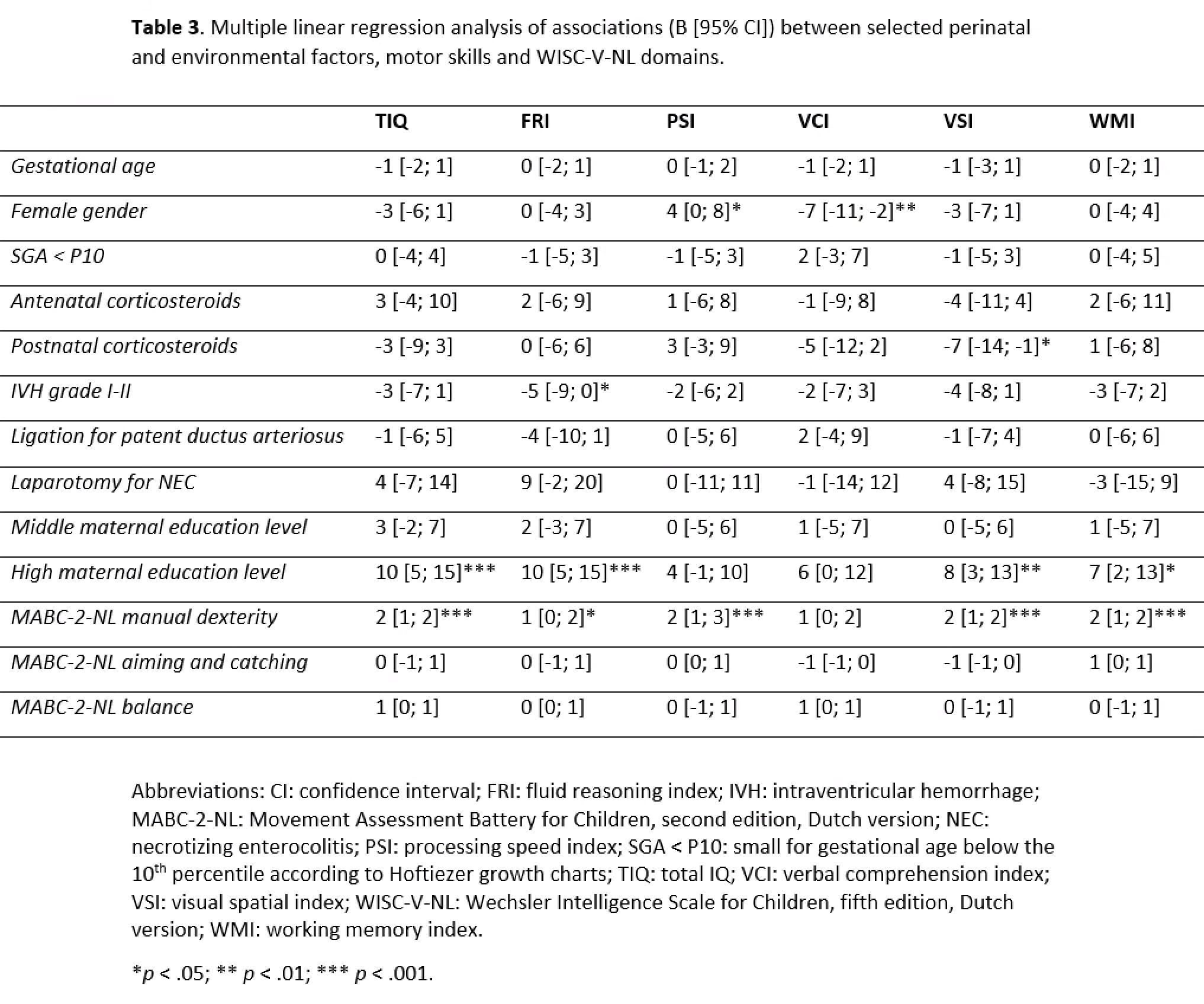Neonatal Follow-Up 3: Long-Term Outcomes in NICU Graduates
Session: Neonatal Follow-Up 3: Long-Term Outcomes in NICU Graduates
583 - From movement to mind: Early fine motor skills are associated with cognitive performance at school age in very premature infants
Monday, April 28, 2025
7:00am - 9:15am HST
Publication Number: 583.4881
Julia S.. Meijer, Máxima Medical Center, Veldhoven, Noord-Brabant, Netherlands; Marleen de Jonge, Praktijk Gunst, Tilburg, Noord-Brabant, Netherlands; Sanne Leenen, Máxima Medical Centre, Venlo, Limburg, Netherlands; Pauline E. van beek, Máxima Medical Center, Utrecht, Utrecht, Netherlands; Ellen de Kort, Maxima MC, Veldhoven, Noord-Brabant, Netherlands; Brigitte Vugs, Maxima MC, Veldhoven, Noord-Brabant, Netherlands; Peter Andriessen, Maxima Medical Center, Eindhoven, Noord-Brabant, Netherlands

Julia S. Meijer, MSc (she/her/hers)
PhD researcher
Máxima Medical Center
Veldhoven, Noord-Brabant, Netherlands
Presenting Author(s)
Background: Although premature birth is associated with deficits in both motor and cognitive functioning, the relation between early motor skills and cognitive outcomes at a later age remains underexplored.
Objective: To evaluate associations between motor skills at age 5.5 and cognitive functioning at age 8.
Design/Methods: Single-center cohort study including children born below 30 weeks’ gestation, between September 1st 2010 and September 1st 2015. Three motor skills (aiming and catching, balance and manual dexterity) were assessed at age 5.5 using the Movement Assessment Battery for Children, 2nd edition (MABC-2-NL). Total intelligence quotient and its five underlying subdomains (fluid reasoning, processing speed, verbal comprehension, visual spatial, and working memory) were assessed at age 8 using the fifth version of the Wechsler Intelligence Scale for Children (WISC-V-NL). Multiple linear regression analysis was used to investigate associations between MABC-2-NL scores and WISC-V-NL outcomes.
Results: In total, 339 children were born of whom 281 (83%) survived to 8 years without congenital malformations. Of these, 185 (66%) had follow-up assessments at both 5.5 and 8 years (Table 1). Scores on motor and cognitive subdomains were lower compared to the normative mean (Table 2). Regression analysis showed that manual dexterity was significantly associated with better scores on all subdomains of cognitive performance, except for verbal comprehension (Table 3).
Conclusion(s): Our main finding is that fine motor function at an early age is associated with later cognitive performance. Early assessment of motor performance may be helpful for early diagnosis and targeted intervention to support optimal cognitive development of premature children.
Table 1
.jpg) Baseline characteristics of children with and without complete 5.5-year MABC-2-NL and 8-year WISC-V-NL assessments.
Baseline characteristics of children with and without complete 5.5-year MABC-2-NL and 8-year WISC-V-NL assessments.Table 2
 MABC-2-NL and WISC-V-NL scores of 185 children compared to the normative mean.
MABC-2-NL and WISC-V-NL scores of 185 children compared to the normative mean.Table 3
 Multiple linear regression analysis of associations (B [95% CI]) between selected perinatal and environmental factors, motor skills and WISC-V-NL domains.
Multiple linear regression analysis of associations (B [95% CI]) between selected perinatal and environmental factors, motor skills and WISC-V-NL domains.
